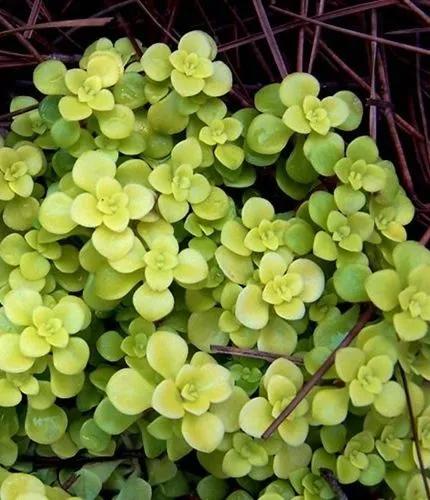Crassula orbicularis is a rosette-like Crassula. It grows as flattened rosettes of round, green leaves that flush copper to burgundy in bright light. This low-growing spreader sends out runners and can form a colony up to 18.0" wide.
Crassula orbicularis Care
Crassula orbicularis



Crassula orbicularis is a succulent perennial, up to 0.25 m high when in flower. It produces a shallow root system, grows in rosettes of few to many leaves and sometimes produces runners. The fleshy leaves are narrow, flat, elliptic, oblanceolate, 15–100 mm long, 5–26 mm wide. They are green to deep bronze, with ciliate margins and sometimes have red or purple undersides. It produces a terminal, compound or rarely spike-like inflorescence, up to 250 mm in height, with leaf-like buds. The flowers are cup-shaped, with a musty scent and rarely blackish when in bud. The petals are 2–5 mm long and are generally whitish, but may sometimes be brownish red, appearing from June to November.
How to Care for the Plant

Water

As succulents, they don't need frequent watering, since they store it in their leaves. If they are left to sit in wet soil, their roots will rot. During cooler months, give them a good drenching and then allow the soil to dry out, before watering again. Crassula plants go dormant when the temperature gets hot in summer and need even less water.

Fertilizer

Feed sparingly. Use a high-nitrogen, soluble plant food, such as a 10-20-10 formula every six weeks. Do not fertilize your plant when the soil is dry.

Sunlight

Full sun to partial shade. Most Crassula plants need some shade in the hottest part of summer, but require bright light to attain their most vibrant color. A site with morning sun and afternoon shade would be perfect.

Soil

Use a well-draining cactus and succulent soil with 50% to 70% mineral grit such as coarse sand, pumice, or perlite.

Temperature

These plants can be grown outside in the areas with the lowest winter temperatures of +1.7°C (35°F). Inside, average room temperatures from 65°F/18.3°C to 75°F/23.8°C.

Container

This plant can be grown in containers. Choose a pot with enough drainage holes.

Popularity

245 people already have this plant 21 people have added this plant to their wishlists
Discover more plants with the list below
Popular articles






